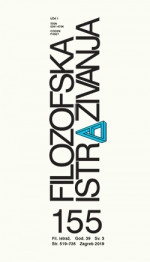Erazmo Roterdamski smatrao je da obrazovanje djece treba započeti u ranoj dobi. Da bismo što bolje razumjeli Erazmove teorije o odgoju, u članku se analizira Erazmov pojam eruditio, ali i ostali pojmovi kao što su: ratio, usus i philosophia. Ukazuje se na zanimljivu poveznicu koja se može povući između suvremenog pojma kritičkog mišljenja i Erazmova pojma eruditio. Isto tako, za razumijevanje Erazmova poimanja odgoja (ali i povezanosti njegove teorije sa suvremenim teorijama kritičkog mišljenja) analiziran je Erazmov opis karakteristika dobrog učitelja. Navedeni opis dobrog učitelja, u nekim aspektima, povezuje Erazma sa suvremenim teoretičarima (i praktičarima) kao što su John Dewey i Oscar Brenifier. Erazmo za rano uvježbavanje zaključivanja nudi basne, vježbe jezika i poslovice, kao što je slučaj i kod suvremenih teoretičara i praktičara kritičkog mišljenja te filozofije s djecom.; Desiderius Erasmus considered that the education of children has to start at an early age. To get a better understanding of Erasmus’ theories about the education, this paper analyses the use of his term eruditio, but also the use of terms such as ratio, usus and philosophia. The aim is to point out the interesting link between the contemporary understanding of critical thinking and Erasmus’ concept of eruditio. Furthermore, for a better understanding of his perception of education (but also of the connection of his theory with contemporary theories of critical thinking), we analyse Erasmus’ description of characteristics of a good teacher. Here mentioned description of a good teacher, in some aspects, link Erasmus with contemporary theorists (and practitioners) such as John Dewey and Oscar Brenifier. As early training and practice for the development of a proper inference, Erasmus suggests fables, language exercises and proverbs, which is similar to what contemporary theorists and practitioners of critical thinking and philosophy with children do.
Sažetak

 Filozofska istraživanja : 39,3(2019) / glavni i odgovorni urednik Ante Čović.
Filozofska istraživanja : 39,3(2019) / glavni i odgovorni urednik Ante Čović.